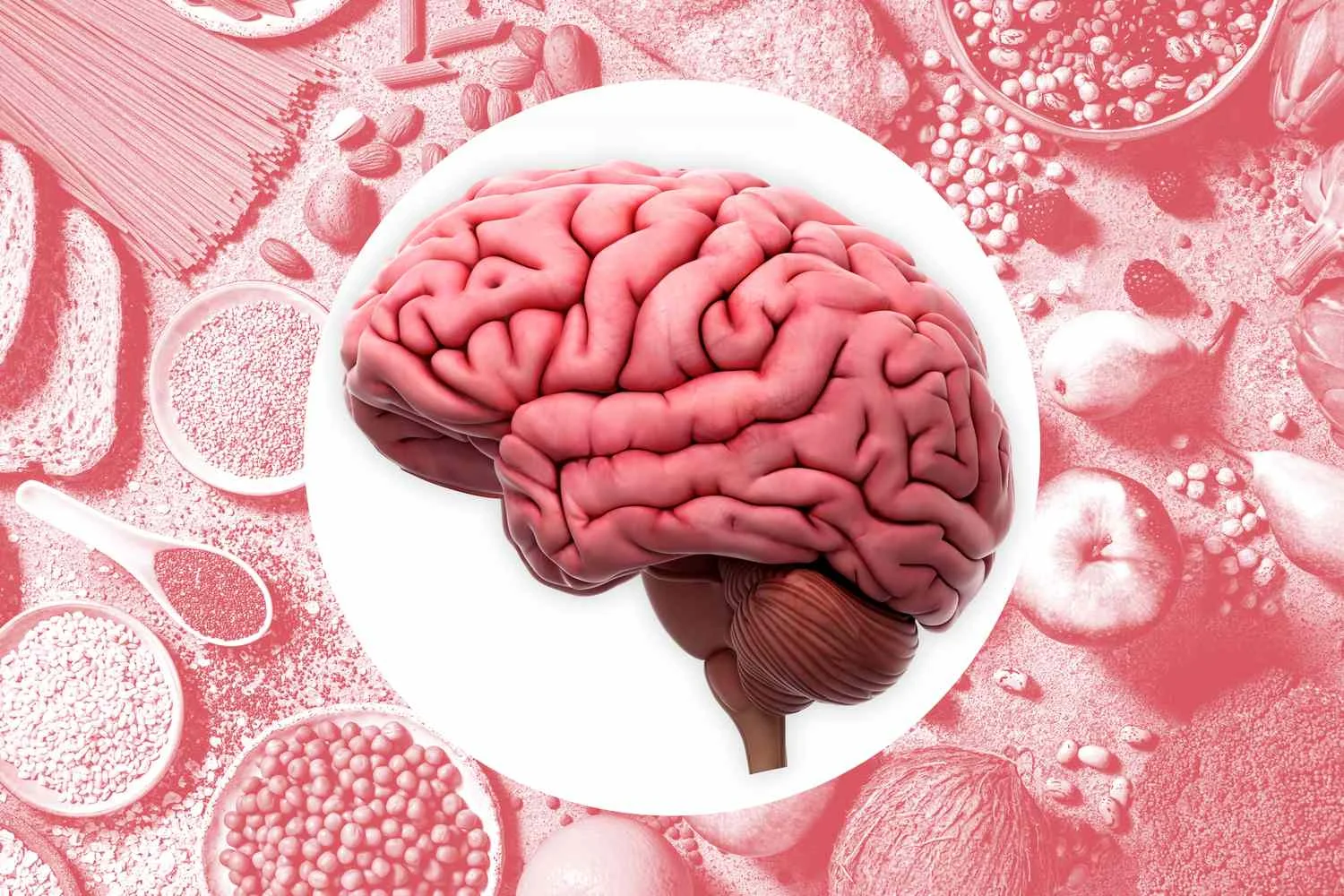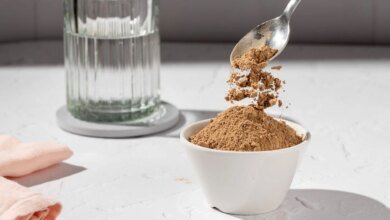These Simple Daily Food Tweaks Could Help Keep The Brain Young

These Simple Daily Food Tweaks Could Help Keep The Brain Young
uaetodaynews.com — These Simple Daily Food Tweaks Could Help Keep the Brain Young
- A new 18-month study found that adults following a calorie-restricted “green-MED” diet — rich in green tea, walnuts, and the leafy plant mankai — showed signs of slower brain aging compared to those on standard healthy-eating or traditional Mediterranean diets.
- Researchers connected decreases in certain blood proteins related to brain aging, especially galectin-9, to the green-MED group’s diet high in polyphenols and low in red and processed meats.
- While the findings show correlation rather than causation, scientists say the results could eventually support simple blood tests to monitor brain health and cognitive aging.
Scientists just gave us another reason to enjoy a cup of green tea today, because it turns out, it might help your brain age more slowly.
In October, a team of international researchers, including those from Ben-Gurion University of the Negev in Israel, Harvard University in Massachusetts, and the University of Leipzig in Germany, published the results of their 18-month secondary analysis of brain aging in the journal Clinical Nutrition.
The team followed nearly 300 adults who participated in the DIRECT PLUS trial, where each was randomly assigned to one of three diets: one based on “general” healthy-eating guidelines; another following the calorie-restricted Mediterranean diet (with 1,500–1,800 calories a day for men and 1,200–1,400 calories for women); and the last adhering to a “green-MED” diet that was also calorie-restricted but higher in polyphenols and lower in red and processed meats (replacing beef and lamb with poultry and fish). It turns out that the last one might be the secret to better brain aging.
As the paper explained, the Green-MED group consumed a daily serving of walnuts (28 grams, to be exact), drank between three and four cups of green tea, and had a mankai shake each day — derived from a green leafy plant that supplies complete proteins. All participants, regardless of their diet group, had access to a gym and guidance on physical activity.
Over the 18 months, the researchers combined MRI scans taken before and after the experiment with a machine-learning model to estimate each participant’s brain age. They then calculated a “brain age gap” by comparing the MRI-estimated brain age with the person’s actual chronological age. A positive gap indicated accelerated brain aging, while a negative gap suggested the brain is aging more slowly than the person’s chronological age (i.e., it is “younger” than the person’s birthday would indicate).
At the start of the study, participants whose brains appeared younger than their actual age tended to share a few traits: they weighed less, had smaller waistlines, lower blood pressure, and healthier blood sugar levels. When researchers examined blood samples before the diet changes, two proteins also stood out: galectin-9 (Gal-9) and decorin (DCN). Higher levels of either were tied to an “older” brain. In their discussion, the authors also cited prior research showing that high levels of decorin in cerebrospinal fluid are associated with early Alzheimer’s changes. And for both proteins, particularly GAL-9, diet choices played an essential role in brain health over time.
Blood markers for these proteins shifted depending on which diet participants followed, with the green-MED group showing the most significant changes. These participants showed the greatest reduction in GAL-9 protein, followed by the Mediterranean group, which showed slight reductions. The markers of the healthy guideline group went essentially unchanged.
“Studying the circulating proteins in blood allows us to observe, in a real-life setting, how the brain’s aging processes are influenced by lifestyle and dietary changes,” Dr. Anat Yaskolka-Meir, postdoctoral research fellow at Harvard and the co-first author of the paper, shared. “This approach gives us a dynamic window into brain health, helping to reveal biological changes long before symptoms may appear. By mapping these protein signatures, we gain powerful new insight into how interventions, such as diet, may help preserve cognitive function as we age.”
The researchers noted some significant limitations in their study, notably that about 90% of the participants were men who initially had abdominal obesity. The machine learning model’s ability to predict the brain age gap was also limited, and although the study found a link between the green-MED diet and decreased brain aging, they cannot yet establish causation. Nevertheless, these findings and their recommendations for brain health contribute to an increasing body of research suggesting that consuming more polyphenol-rich foods like green tea and walnuts, along with reducing processed and red meats, could offer substantial health benefits.
And perhaps most importantly, the authors suggest their findings could someday enable medical and scientific professionals to better understand brain health.
“In this study, we are taking a small step toward a new possibility,” Dafna Pachter, a Ph.D. student and the first author of the paper, said. “A simple, accessible, and affordable blood test that could, in the future, provide an indication of brain status by analyzing omics layers in the blood.”
Disclaimer: This news article has been republished exactly as it appeared on its original source, without any modification.
We do not take any responsibility for its content, which remains solely the responsibility of the original publisher.
Author: Stacey Leasca
Published on: 2025-10-25 05:14:00
Source: www.foodandwine.com
Disclaimer: This news article has been republished exactly as it appeared on its original source, without any modification.
We do not take any responsibility for its content, which remains solely the responsibility of the original publisher.
Author: uaetodaynews
Published on: 2025-10-25 02:37:00
Source: uaetodaynews.com




